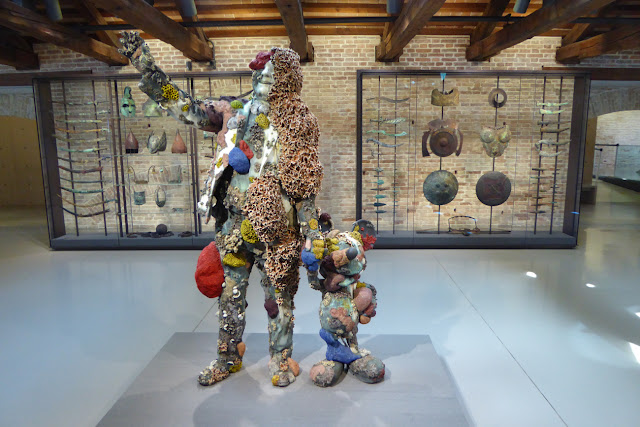YARO BLOG SEPTEMBER 2020
LIFE AFTER LIFE
El Camino de Santiago Spain - 2006
Y. Starak & A. Moffat as pilgrims
Dear reader,
I am now reflecting on my years
of retirement and the challenges that kept me well and occupied with family and
art. In my ‘other life’ I was working 9am to 5pm most days of the week
lecturing students at the University of Queensland dept. of Social Work and
Social Science. Those were indeed wonderful years; teaching, researching, and
publishing. At the same time, I was a founder and co-founder of several Gestalt
Therapy institutes throughout Australia.
Now, in my New LIfe, I am an artist; busy painting
portraits of friends and family and exhibiting my work with my partner and wife
Gemma Garcia. Even the terrible situation with the COVID virus cannot stop us. We
are now very busy with our creative work. (see www. arttherapygestalt.com).
Someone said to me, the other
day: “WHAT NOW, HOW IS LIFE AFTER LIFE?” I was not sure of the meaning but
decided to reflect on this challenging question. My own calling to a new life was
my first experience walking the CAMINO in Spain and a real calling to a new way
to walk life. And that is exactly what Michael is describing below, those were my own
feelings as a pilgrim walking the 900+K.
My mentor, Michael Meade,
indicates that a sign of certain courage is needed to follow what is calling us. This
is also linked with my previous blogs on the SOUL. Here is his article that I
am happy to share with you and hope you can also “follow your bliss” in the
next stage of your life.
A certain kind of courage is
required to follow what truly calls to us; why else would so many choose to
live within false certainties and pretensions of security? If genuine treasures
were easy to find this world would be a different place. If the path of dreams
were easy to walk or predictable to follow many more would go that route. The
truth is that most prefer the safer paths in life even if they know that their
souls are called another way.
What truly calls to us is beyond
what we know or can measure. It uses the language of hidden treasures and
distant cities to awaken something sleeping within us. The soul knows that we
must be drawn out of ourselves to truly become ourselves. Call it a dream or
“the treasure hard to attain”; call it a vocation or the awakening of our
innate genius. Call it what you will, upon hearing the call we must follow or
else lose the true thread of our lives.
A true vocation requires shedding anything that would impede or obscure the call. A true pilgrimage requires letting go of the very things most people try to hold onto. In seeking after what the soul desires we become pilgrims with no home but the path the soul would have us follow. As the old proverb says: “Before you begin the journey, you own the journey. Once you have begun, the journey owns you.”
After all,
what good is a dream that does not test the mettle of the dreamer? What good is
a path that does not carry us to the edge of our capacity and then beyond that
place? A true calling involves a great exposure before it can become a genuine
refuge.
In the soul’s adventure, we become a self-unknown, a self-unexpected, and in that way, we find the greater soul and genius self within us. Answering the call gives primacy to unknown places and foreign lands; it requires that we seek farther in the world than we would choose on our own. We enter our essential “creatureliness” and learn to sniff at the world again. We learn to read the wind and find our way by sensing and intuiting, by imagining and by dreaming on. Eventually, the dream of the soul becomes the only hope; it becomes a prayer and a map as well. In allowing the journey to “have us” we become lost; we lose our usual selves to find our original self again. Lost souls are the only ones who ever get found.
- Michael Meade, "Fate and Destiny, The Two Agreements of the Soul"
Father and son finding treasures of the unbelievable by Damien Hirst

